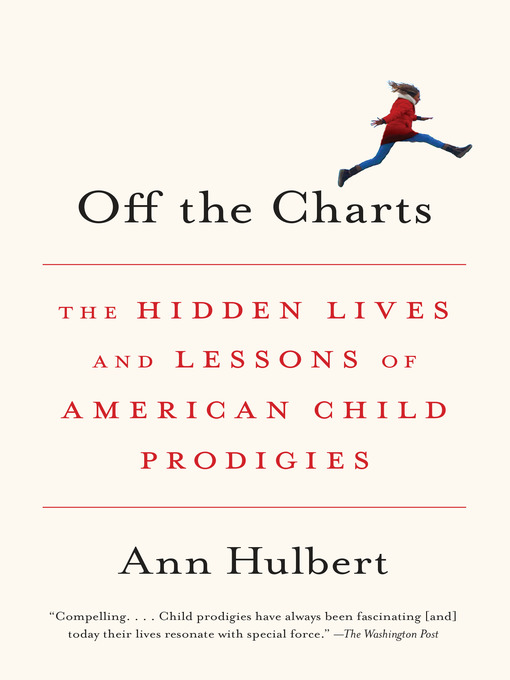
Ann Hulbert examines the lives of children whose rare accomplishments have raised hopes about untapped human potential and questions about how best to nurture it. She probes the changing role of parents and teachers, as well as of psychologists and a curious press. Above all, she delves into the feelings of the prodigies themselves, who push back against adults more as the decades proceed. Among the children are the math genius Norbert Wiener, founder of cybernetics, a Harvard graduate student at age fifteen; two girls, a poet and a novelist, whose published work stirred debate in the 1920s; the movie superstar Shirley Temple and the African American pianist and composer Philippa Schuyler; the chess champion Bobby Fischer; computer pioneers and autistic "prodigious savants"; and musical prodigies, present and past. Off the Charts also tells the surprising inside stories of Lewis Terman's prewar study of high-IQ children and of the postwar talent search begun at Johns Hopkins, and discovers what Tiger Mom Amy Chua really has to tell us. But in these moving stories, it is the children who deliver the most important messages.
-
Creators
-
Publisher
-
Release date
January 9, 2018 -
Formats
-
Kindle Book
-
OverDrive Read
- ISBN: 9781101947302
- File size: 15543 KB
-
EPUB ebook
- ISBN: 9781101947302
- File size: 15469 KB
-
-
Accessibility
-
Languages
- English
-
Reviews

Loading
Formats
- Kindle Book
- OverDrive Read
- EPUB ebook
subjects
Languages
- English
Why is availability limited?
×Availability can change throughout the month based on the library's budget. You can still place a hold on the title, and your hold will be automatically filled as soon as the title is available again.
The Kindle Book format for this title is not supported on:
×Read-along ebook
×The OverDrive Read format of this ebook has professional narration that plays while you read in your browser. Learn more here.